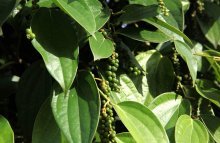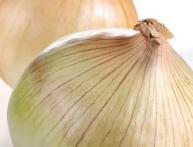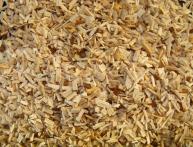What is black pepper, beneficial properties and chemical composition
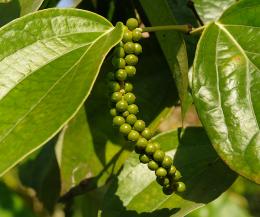
The word pepper sometimes refers to two completely different and unrelated crops. The birthplace of one pepper, which is usually called vegetable, is the American continent. It was here that many vegetable crops from the nightshade family grew.
Vegetable peppers, regardless of whether their fruit tastes sweet or spicy, belong to the Solanaceae family. Another plant called pepper is native to India. It is there that a genus of plants grows called Pepper from the Pepper family. Several species from this genus were among the first spices used by humans for cooking.
It is to the genus Pepper from the Pepper family that the Black pepper species belongs. Ground pepper is obtained from black pepper. It can be black, green, white and even pink pepper. It all depends on the method of processing the raw materials. Let's try to find out what black pepper is and the beneficial properties of this spice.
Content:
- What is black pepper made of?
- What are the benefits of black pepper for the body?
- The use of black pepper in folk medicine
What is black pepper made of?
Like any food, black pepper has nutritional value and is made up of nutrients. Nutrients present in 100 g of black pepper:
- protein -10 g
- carbohydrates - 39 g
- fat 3 g
- water 12 g
- dietary fiber 25 g
- ash 4 g
Nutritional value is 251 kcal/100 g.The chemical composition of pepper fats includes beneficial unsaturated fatty acids, these are primarily:
- oleic
- linoleic
- linolenic
In protein composition pepper There are the following essential acids:
- leucine
- valine
- lysine
- isoleucine
- lycine
- tryptophan
- threonine
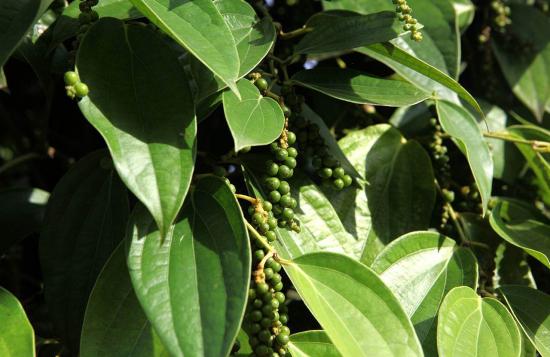
Carbohydrates in pepper include:
- glucose
- fructose
- sucrose
- galactose
In addition to nutrients, black pepper contains useful substances, primarily vitamins. It contains vitamins that are usually classified as fat-soluble, namely vitamins A, E, K. It also contains water-soluble vitamins:
- AT 2
- AT 4
- AT 5
- AT 6
- AT 9
- RR
Rich black pepper and minerals. It contains microelements:
- Iron
- Fluorine
- Selenium
- Copper
- Manganese
Macronutrients contained in black pepper:
- Potassium
- Magnesium
- Calcium
- Phosphorus
- Sodium
Among the chemical compounds found in pepper, substances such as phytosterols should be noted. Let's consider the benefits of black pepper for human health based on its chemical composition.
What are the benefits of black pepper for the body?
The high content of vitamin K suggests the benefits of black pepper as a product that can increase blood clotting. Its content in pepper is quite high, so daily consumption of this spice will help maintain normal blood clotting abilities.
In addition, vitamin K affects the synthesis of certain proteins. It is actively involved in the synthesis of bone tissue proteins. Vitamin A affects vision and its sharpness, and the B group of vitamins performs many functions in the body. These vitamins support basic metabolic processes, regulate the functioning of the digestive organs.
It is known that black pepper increases appetite and stimulates the secretion of digestive juices. In addition, the content of phytosterols affects lipid metabolism and reduces the level of “bad” cholesterol, cleanses blood vessels of harmful deposits.
As a result of eating pepper, blood vessels become more elastic, blood flow in the heart muscle and brain improves. The effect of black pepper and its phytosterols on the growth of cancer cells is currently being studied. It is believed that eating moderate amounts of black pepper can prevent cancer of the stomach, breast and other organs.
Contraindications
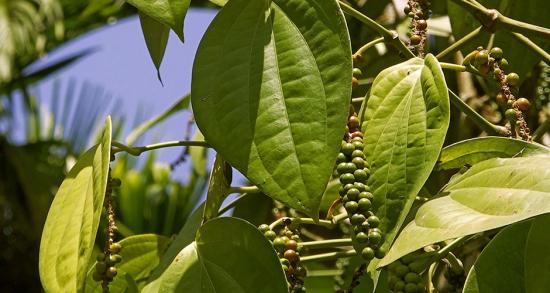
When eating pepper, do not forget that moderation is needed in everything. Pepper is contraindicated during periods of exacerbation of gastric and duodenal ulcers. Also, you should not include it in the diet if you have diseases of the bladder or kidneys. People prone to nervous excitability should use black pepper with caution.
The use of black pepper in folk medicine
Black pepper, like many spices and spice plants have disinfecting properties. During flu epidemics and outbreaks of colds in the cold season, you not only need to add pepper to your food, but you can also place saucers with black pepper in your living room. It will release volatile substances that can destroy pathogenic microorganisms.
For loss of strength and male weakness, we can recommend a remedy made from black pepper, sugar and milk. To do this, just add a teaspoon of sugar and half a teaspoon of pepper to a glass of milk, stir and drink two hours before bedtime. Take the medicine in a course for a week.
Positive changes occur after the first or second dose. The use of black pepper with honey can help in the treatment of prostatitis in its initial stage.
External use of black pepper preparations also helps. To do this, mix two tablespoons of ground pepper with a half-liter bottle of vodka. The mixture is infused for 21 days. Do this in a place protected from sunlight.
The resulting composition can be rubbed on the chest for bronchitis and other inflammatory conditions. diseases respiratory organs. Also, alcohol tincture of black pepper is rubbed into the scalp. This is done half an hour before washing. This procedure will strengthen your hair and reduce hair loss. Before application, you need to conduct an allergy test by smearing the skin on the inner bend of the elbow with the tincture.
If itching and burning occurs, the tincture should not be used externally. Despite its widespread use in folk medicine, the main purpose of black pepper is its use in cooking. It is thanks to this spice that dishes are more aromatic and attractive.
Video on how to grow black pepper at home:

